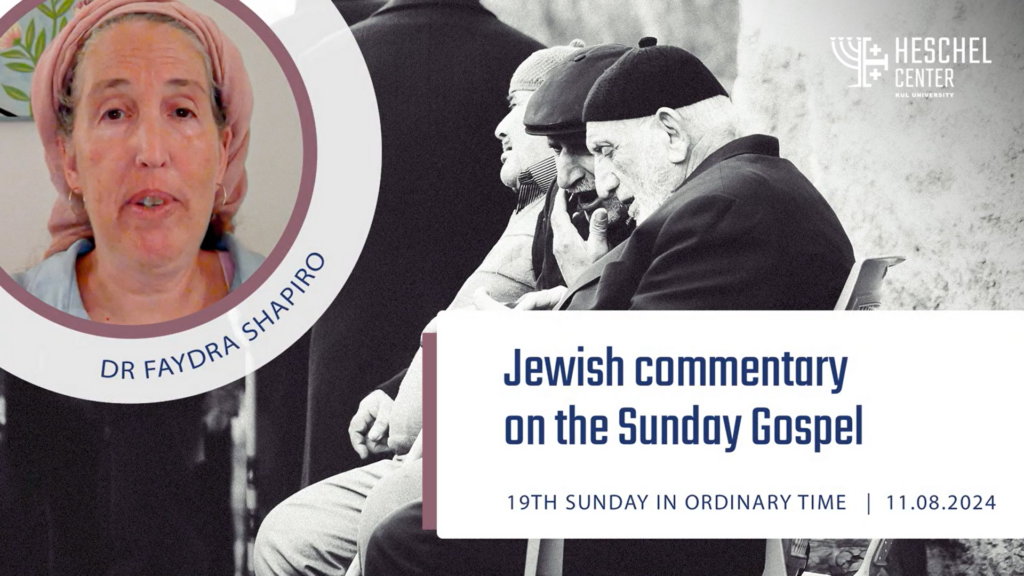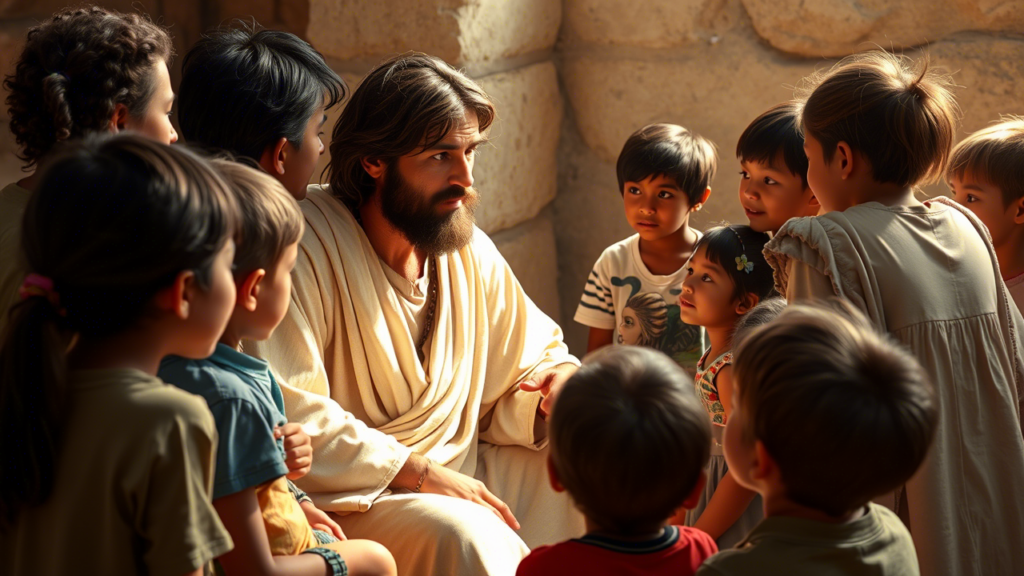Heschel Centre for Catholic-Jewish Relations at the Catholic University of Lublin
11 August, 2024
3 min
Murmuring Jews – mere complaining or “productive conflict”?
“Disagreement, questioning, complaining: these are not in themselves a problem. In Judaism we have a lively concept of ‘productive conflict’ – what me might call ‘healthy disagreement’”, stresses Dr. Faydra Shapiro, the Director of the Israel Center for Jewish-Christian Relations, in her commentary for the Catholic University of Lublin Heschel Center for the Sunday, August […]

“Disagreement, questioning, complaining: these are not in themselves a problem. In Judaism we have a lively concept of ‘productive conflict’ – what me might call ‘healthy disagreement’”, stresses Dr. Faydra Shapiro, the Director of the Israel Center for Jewish-Christian Relations, in her commentary for the Catholic University of Lublin Heschel Center for the Sunday, August 11.
It might be normal to think “what is wrong with those Jews, grumbling all the time?” And really, there is a long tradition of Jewish “grumbling” or “murmuring” in the Hebrew Bible. The Septuagint uses the same Greek word as we see in this Gospel five times to relate about how the children of Israel grumbled in the wilderness: once in Exodus and four times in the book of Numbers. In each case, they grumble – or murmur, or complain – in some English translations – for some pretty reasonable concerns, frankly. Because they don’t have water, or meat. Because they are afraid that they will be slaughtered in the desert, and because they don’t understand the fate of Korah and his followers. But the problem seems clearly that they don’t just grumble, rather there’s a problem with the way they grumble. In each case the children of Israel grumble *against* someone: God, Moses or Aaron. And I think this can help us to make sense of a tiny piece of the Gospel reading.
In today’s Gospel it’s very tempting to think “Oh, here go those Jews with their grumbling and murmuring again.” But Jesus doesn’t say “stop murmuring” – he says “Stop murmuring among yourselves.” There’s a difference. He doesn’t mean, “stop asking questions” or but rather “bring those questions out, let’s talk about these issues.” Because let’s face it, those are some pretty reasonable questions the Jews are asking in this Gospel.
Disagreement, questioning, complaining: these are not in themselves a problem. In Judaism we have a lively concept of “productive conflict” – what me might call “healthy disagreement.” The Mishna, written down maybe a century after the Gospel of John, teaches in Pirkei Avot (5:17) that “Any disagreement which is for the sake of Heaven shall eventually endure and any disagreement which is not for the sake of Heaven shall eventually not endure.
This distinction between constructive and destructive disagreement can allow us to not only avoid unhealthy conflict but also should serve to encourage wrangling “for the sake of Heaven”. Questioning, challenging and disagreement are not necessarily marks not negativity, strife or schism but rather are understood to be an essential part of making sense of the things that matter. Some things are important enough to disagree over, to ask questions about. The challenge is learning how to disagree well. This Gospel presents us with a model that suggests disagreements ought not remain hidden in the background but ought to be brought out and examined together.
About the author:
Dr. Faydra Shapiro is a specialist in contemporary Jewish-Christian relations and is the Director of the Israel Center for Jewish-Christian Relations. She received the National Jewish Book Award for her first publication (2006). Her most recent book, with Gavin d’Costa, is Contemporary Catholic Approaches to the People, Land, and State of Israel. Dr. Shapiro is also a Senior Fellow at the Philos Project https://philosproject.org and a Research Fellow at the Center for the Study of Religions at Tel Hai College in Israel.
Related

Explaining Holy Week to Our Children: A Journey of Faith and Hope
Laetare
11 April, 2025
4 min

Christian Leadership in Business: A Model of Humility, Justice, and Solidarity
Javier Ferrer García
10 April, 2025
3 min

Guiding Our Decisions with God’s Will in Daily Life
Patricia Jiménez Ramírez
10 April, 2025
4 min

What are you going to do with your life?
Luis Herrera Campo
10 April, 2025
2 min
 (EN)
(EN)
 (ES)
(ES)
 (IT)
(IT)

